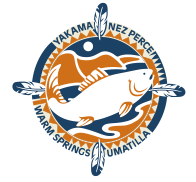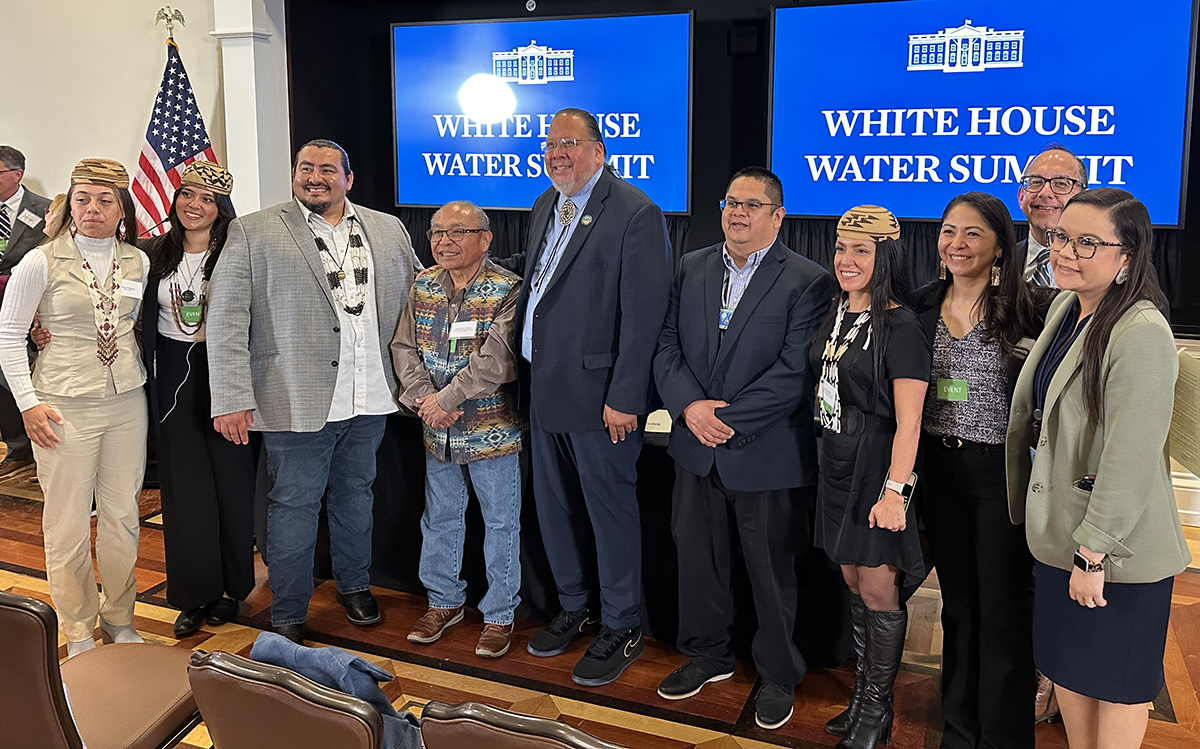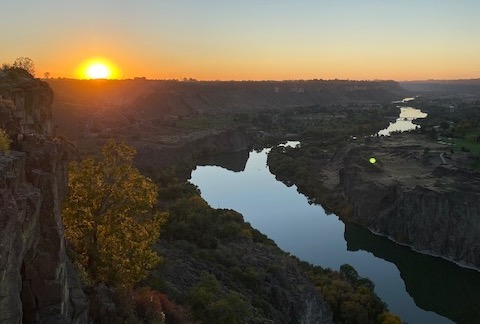By Andrea Tulee, CRITFC Public Affairs Specialist
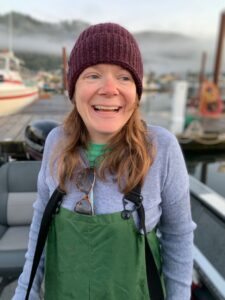
New CRITFC CFO Catherine Villarreal.
Last month, Catherine Villarreal joined the CRITFC team as the organization’s new chief financial officer. Catherine is a citizen of the Ottawa Tribe in Oklahoma and has lead financial teams at Ecotrust and the Special Olympics. Catherine was a self-described “military brat” who has lived many places around the world, giving her the opportunity to experience and learn from a diverse array of cultures. CRITFC is excited to bring her on as a highly valued team leader in our fight to put fish back in the rivers and restore the watersheds where they live.
I recently spoke with Catherine about what lead her to this new position. During our conversation, which has been edited for length and clarity, we discussed how her experience and interests help salmon and the environment.
Can you share a little bit about yourself and your professional and educational background for us?
Of course, thank you for the opportunity. I bring a diverse background to the role of CFO that combines both strong academic credentials and extensive professional experience. I hold a master’s degree in business management and am working toward my Doctorate in Accounting from Columbia Southern University. I’ve worked my way up through the ranks across several industries giving me a very rounded understanding of how money flows within organizations.
As I step into the role of CFO, I am excited to apply my expertise in financial operations and to contribute to the overall fiscal well-being of CRITFC. I’ve known since I was five that I wanted to be an accountant. I love numbers and the puzzles of clean financial statements, and I look forward to carrying that passion with me into this work.
Aside from your professional and educational accomplishments, are there any specific personal or cultural experiences that have helped prepare you for this role of CFO at CRITFC?
I spent several years serving veterans which has brought a ton of value to my life. Growing up as an Air Force brat, I’ve had the privilege of living all over the globe. I was also blessed with parents that fueled my passion for learning. Every place we lived, I was immersed into the culture including the language and religions. I understand the value of culture and history and am always eager to learn more.
You’ve done a lot of environmental work during your career. When I think of environmental protection work, I usually think of people out in the field. What role does finance and accounting play in the effort to protect and restore salmon?
I love this question. Finance and business operations can prioritize the environment through their practices and decisions. Going paperless is an easy step to help the environment. Vetting vendors who are also committed to the environment and reducing waste are important too. Providing clear data to support decision-making in the field is an environmental effort.
So, although our field work occurs on a computer, environmentalism can be a key mission inside the Finance and Operations team.
Thank you for keeping that in consideration as our new CFO; it’s more important than ever we make environmentally responsible adjustments wherever we possibly can because of climate change and resource scarcity. If you don’t mind, I’d like to ask you some questions about your life as a military child because that is very intriguing to me. Which of your family members served in the military and what was your favorite post?
My dad was an Air Force sergeant for 20 years. We lived in England, Mississippi, Hawaii, North Dakota, Japan, and Texas. Japan was my favorite base. The culture there was environmentally focused, and I loved the lessons I learned. I also got to visit Korea, Guam, Thailand, and China while stationed in Japan. My husband enlisted in the US Marine Corps while we were engaged and got out shortly after our son was born. We never got to go any place cool, but I am proud of his service.
I think that’s amazing that you carry all those experiences with you. What would you say was the most difficult aspect about being a military child, and what was the most rewarding?
Moving every three years is rough on anyone; I just moved, I know! However, that influenced me to become extremely adaptable to change. Not to mention the numerous people I’ve met and maintained friendships within my life. All that far outweighed any difficulties the military brat lifestyle had.
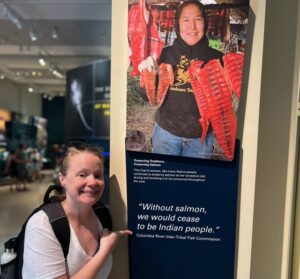
Catherine at the National American Indian Museum.
The world over, salmon affect the cultures of the people whose lives they touch. The traditional cultures of Columbia Plateau tribes, Japanese Ainu, Pacific Northwest coastal tribes, the Norwegian coastal areas, and the Russian Far East are all very different, but they all share a reverence and gratitude for the bounty that salmon provide. You’ve lived around the world including another salmon country — Japan. Are there any traditions or teachings from other cultures that you have kept from another area of the world that you think we could learn from or incorporate here in the United States?
My time on Kauai certainly expanded my understanding of human impacts on the environment. The scarcity of resources was prevalent and remain a challenging issue for the Hawaiian people who once had all they required by simply working with the land and water. Native Hawaiian culture and beliefs are based on ancestral relationships between people and places much like the four CRITFC member tribes. I feel there are many lessons that all Americans can learn from both the Hawaiian and Columbia Plateau cultures.
————
Thank you so much for your time, Catherine. I’m excited that you’re part of the CRITFC team in service of our member tribes. Your unique upbringing adds to the beautiful diversity of our workforce here at CRITFC and I’m looking forward to working with you.
Kwathlanushamash*
*“Thank you” (literally “you have given me happiness”) in Ichiskiin, one of the Sahaptin dialects spoken in the Columbia Basin.
